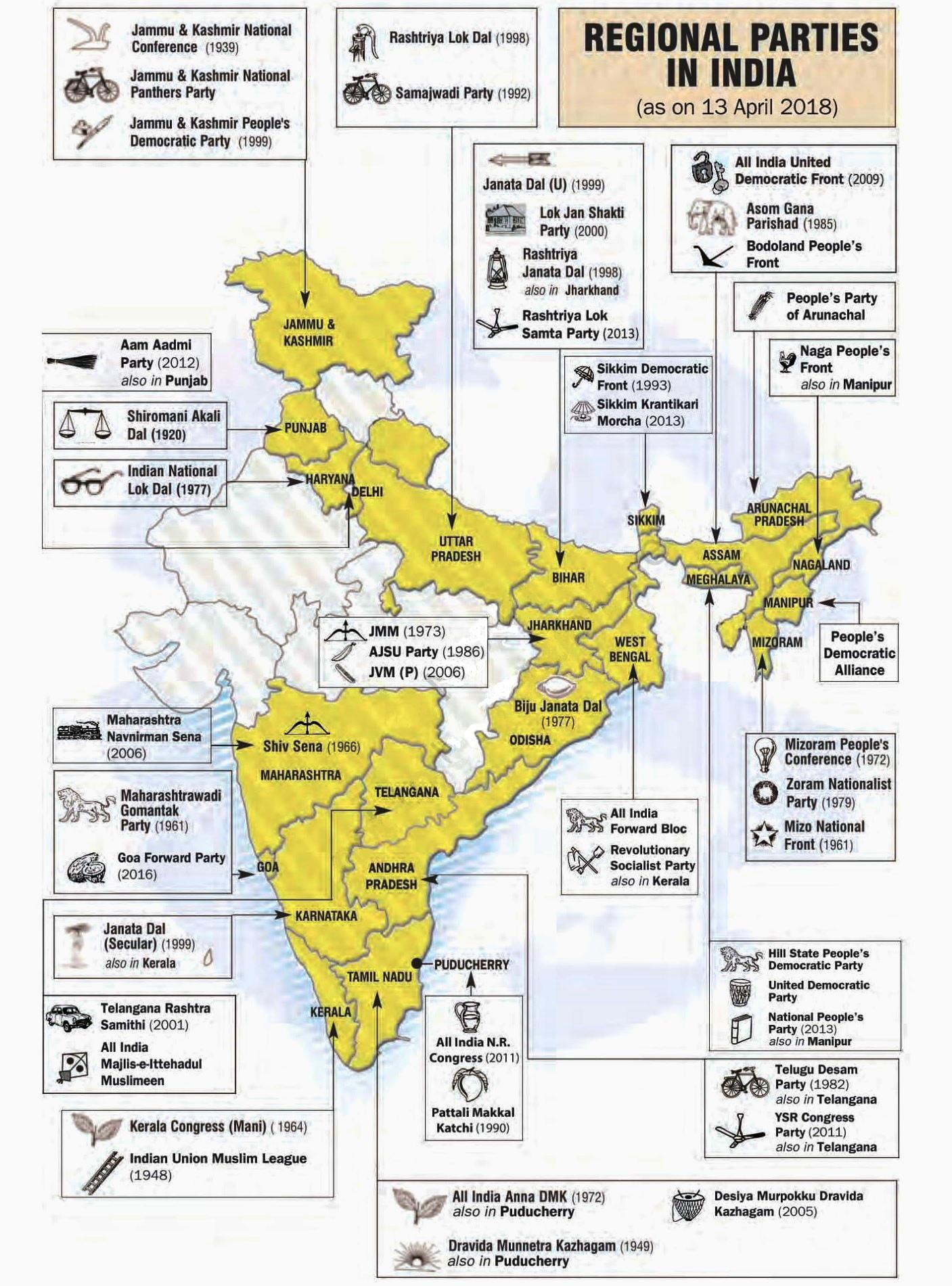Social Science Notes for Chapter 4 Political Parties Class 10 - FREE PDF Download
Political Parties Class 10 Social Science Chapter 4 CBSE Notes - 2025-26

FAQs on Political Parties Class 10 Social Science Chapter 4 CBSE Notes - 2025-26
1. What are the main functions of a political party in a democracy for a quick summary?
A political party performs several key functions: it contests elections by putting up candidates, presents policies and programmes to voters, plays a crucial role in law-making, forms and runs the government, acts as the opposition to check the ruling party, shapes public opinion, and provides people with access to government machinery.
2. How can I quickly revise the different types of party systems mentioned in Chapter 4?
To quickly revise, remember the three main systems:
- One-Party System: Only one party is allowed to control and run the government.
- Two-Party System: Power mainly alternates between two major parties, as seen in the United Kingdom.
- Multi-Party System: Several parties compete for power and may form coalitions or alliances to form a government, which is the system in India.
3. For revision, what is the core difference between a national party and a state party?
The core difference lies in their reach and recognition criteria. A national party has influence and units across several states and meets specific nationwide vote or seat thresholds set by the Election Commission. A state party (or regional party) has its influence limited to one or a few states and meets the vote or seat criteria within that particular state to gain recognition.
4. What are the key challenges that political parties in India face, as a summary?
The main challenges to summarise are: a lack of internal democracy, the issue of dynastic succession where top positions are controlled by one family, the growing role of money and muscle power in elections, and often, the failure to offer a meaningful choice to voters as parties can have similar ideologies.
5. What are the major reforms suggested for political parties in this chapter?
The key reforms suggested for political parties include: creating a law to regulate their internal affairs, making it mandatory to give a minimum number of tickets to women candidates, and introducing state funding of elections to reduce corruption. Reforms already implemented include the anti-defection law and mandatory affidavits for candidates detailing their assets and criminal cases.
6. Why is a multi-party system considered more suitable for a diverse country like India compared to a two-party system?
A multi-party system is better suited for a country with vast social and geographical diversity like India because it allows a variety of interests and opinions to gain political representation. Different regions and social groups can form parties that voice their specific concerns, ensuring a more inclusive democracy than a two-party system where power is concentrated between only two major groups.
7. How do the challenges faced by political parties, such as a lack of internal democracy, relate to the need for specific reforms?
The challenges and reforms are directly linked. For instance, the challenge of a lack of internal democracy, where power is concentrated with a few top leaders, directly leads to the proposed reform of making organisational elections mandatory. Similarly, the challenge of money power in elections is what prompts the suggestion for state funding of elections to create a more level playing field.
8. For a quick revision of Political Parties Class 10, what are the most crucial topics to focus on?
For an effective revision, focus on these four core areas:
- The primary functions of political parties.
- The definitions and criteria distinguishing national vs. state parties.
- The major challenges faced by political parties (e.g., dynastic succession, money power).
- The key reforms suggested to strengthen them, including the anti-defection law.
9. Are all regional parties also 'State Parties'? How does the Election Commission's recognition work?
No, not all regional parties are officially recognised 'State Parties'. A 'State Party' is a formal title granted by the Election Commission of India to a party only after it secures a minimum percentage of votes or seats in a state election. A party might be regional in focus but may not have met this official criteria yet. Recognition is important as it grants privileges like an exclusive election symbol.




















 Watch Video
Watch Video



















